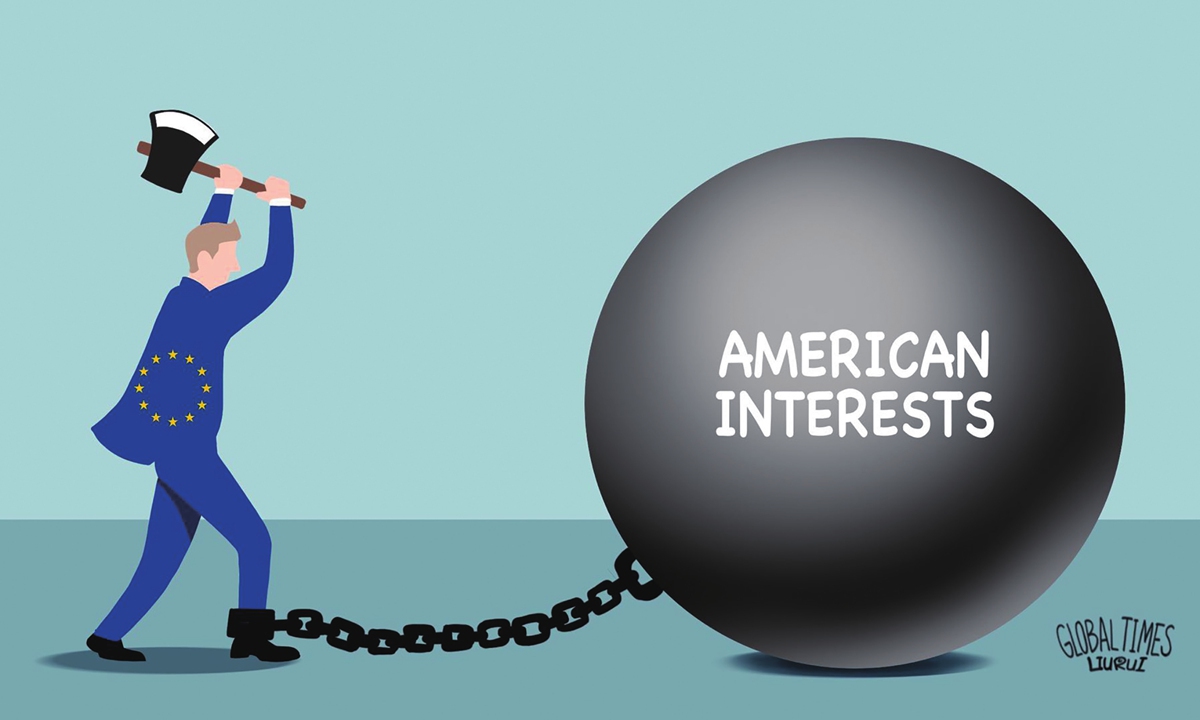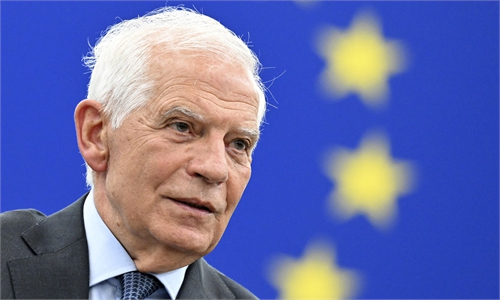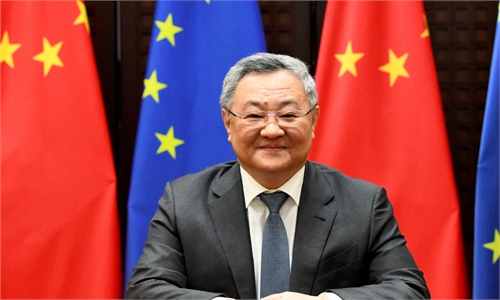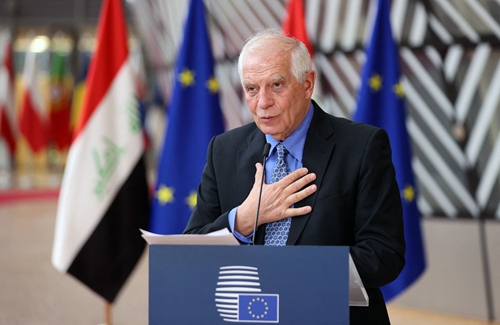
Illustration: Liu Rui/GT
The recent visit to China by French President Emmanuel Macron has offered a good opportunity for the two important nations and global powers to enhance mutual understanding and diplomatic trust, which will inject new vigor into fostering long-lasting friendship between Chinese and French people, while at the same time help cement the economic interdependence and promote symbiotic growth between China and the EU.It is in the common interest of China and the EU to continue to see one another as true economic partners and responsible stakeholders, but definitely not rivals or adversaries, as there is no irreconcilable geopolitical conflict of interests between them.
President Macron is highly regarded in China for his distinct vision and steadfast pursuit of strategic autonomy for France, as well as the EU. Bearing eyewitness to the regained dynamism of Chinese economy after the 2020-2022 COVID pandemic, he can now see clearly the potential of maintaining close cooperation between Chinese and French enterprises and the prosperity the cooperation will bring to France and Europe at large in the coming decades. The world still remembers that, for a time, the politicians in Washington DC labeled France and Germany as "old, decaying Europe".
In recent months, US government officials have done whatever they could to muddy the waters and plant a wedge between the EU and China in order to slow down China's growth. Immediately after President Macron's comeback to Paris, mainstream US media are denigrating and demonizing his legitimate assertion of French and European policy independence. And, notorious US politicians like Marco Rubio and Lindsey Graham launched a brutal attack on President Macron for seeking to be the "Third Force" in the world.
President Macron has seemingly ignored the nay-saying. In a speech at the Nexus Institute in The Hague, the Netherlands, he emphasized the importance of pursuing the EU's strategic autonomy and refusing to be "a vassal of the US" on the global stage.
Facing an increasingly tumultuous world, such as the Ukraine conflict and the de-globalization and "decoupling" headwinds being orchestrated by Washington DC, it is imperative for both the EU and China to strengthen their cooperation to defuse the inflaming tensions and seek an early peace in Europe, and uphold the banner of globalization and common prosperity, by saying no to Washington's nefarious attempt to debilitate and splinter the world.
The fast-growing Chinese market with 1.4 billion consumers is a huge opportunity for France and the EU. China is currently "on all cylinders" to revive its economy and realize a Chinese style of modernization, which will shore up its trade and economic partners too. Chinese leadership has called on France, the EU and China to "have the ability and responsibility" to rise above their ideological differences in order to "inject new momentum and bring new vitality to China-Europe relations" that benefit both sides.
As each other's premium trade and economic partner, the EU and China are closely integrated in trade now. It's silly to ask which side depends on the other more as their development belongs to symbiotic growth. China-EU economic and trade relations are, in essence, complementary and mutually beneficial.
Last year, trade and economic cooperation between the two sides remained resilient and fruitful, with their total trade volume hitting a new record of $910 billion, up 23 percent from 2021.
To contain China's growth, the US government has pressed its European allies to climb on to its "decoupling" bandwagon by "reducing economic dependency" on China - one of the world's most vibrant major economies of many years. A few smaller members of the EU are buying Washington's narrative, willing to be subservient to the US government and crowing for the "risks" posed by China's ever-growing power.
Such bias against China - which originated from, and has been fomented by the US government - will hurt Europe's strategic autonomy and negatively impact the width and depth of EU-China reciprocal cooperation. It is therefore reasonable and good to hear President Macron and more reasonable European voices calling for an independent policy toward China, and speaking out aloud against "decoupling" from Chinese economy.
As demonstrated by many years of close collaboration that have significantly benefited both the EU and Chinese economies, the two sides have plenty of reasons to continue economic cooperation, resolutely support free global trade and technology integration and oppose trade protectionism and economic fragmentation. The EU should always act as an independent and major economic and political force, and never downgrade itself into an expendable piece on Washington's geopolitical chessboard.
As a matter of fact, a multipolar world in which the EU and China act as two decisive poles is more enduring, ideal and stable than a unipolar bully. Strengthening each other's economies and improving their people's livelihood should top the agenda of the EU and China, for only strong economies could empower them to weather whatever future headwind is.
The stakes are high for China, France and the EU to always uphold their win-win economic partnership, never to be swayed by Washington politicians and Anglo-Saxon think tanks' lecturing over win-lose competition and cutthroat rivalry, which in essence is zero-sum game to prolong the US' hegemonic role in the world. The European Council held a strategic discussion on EU's policy toward China a few months ago, reaffirming EU's stance that it should have an independent China policy rather than doing Washington's bidding. That policy stance has won acclaim in the world.
While China hawks in the US have kept criticizing President Macron for "acting alone" and "betraying" the US, European Council President Charles Michel lent him a helping hand days ago by saying that EU leaders are becoming increasingly favorable toward Macron's push for strategic autonomy from Washington DC. Michel noted that while some leaders still won't say it publicly, they view things the same way as President Macron. The exorbitantly expensive LNG from the US to Europe and the sabotage of the Nord Stream pipelines, have said explicitly a truth that the US only cares about its own interest at the expense of all others.
It is encouraging to see more officials in Europe start to realize that "decoupling is not viable, desirable or practical for Europe". China's importance for the EU has grown over the past years. The EU's exports to China are now much larger than the US' exports to China. With the rapid economic recovery in China in the post-pandemic era, Europe's broad auto, chemicals, luxury, travel and leisure sectors all stand to benefit.
The author is an editor with the Global Times. bizopinion@globaltimes.com.cn



